October is the Dyslexia month in Finland. To mark this, we would like to introduce you to five books on dyslexia. Dyslexia means that reading and writing are difficult, and it is common also among university students. There are many tricks and tools to help with reading and learning, and you will find many of them in these books. Also, check out the library guide for making reading easier.
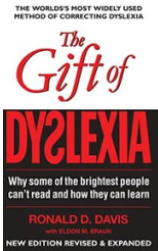 Davis, R. D. (2010). The gift of dyslexia: Why some of the smartest people can’t read and how they can learn (3rd ed.). Souvenir Press. Davis, R. D. (2010). The gift of dyslexia: Why some of the smartest people can’t read and how they can learn (3rd ed.). Souvenir Press.
This book was an immediate best-seller at the time of its first publication in 1994, and no wonder. Davis writes from his personal experience with dyslexia, offering both information on the condition and techniques for overcoming it. Davis shows how dyslexics often have special talents of perception, imagination and intuition, which will help them overcome their problems with reading and mathematics. |
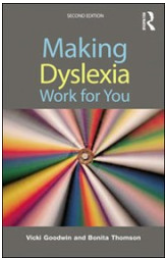 Goodwin, V., & Thomson, B. (2012). Making dyslexia work for you. Routledge. Goodwin, V., & Thomson, B. (2012). Making dyslexia work for you. Routledge.
This user-friendly guide has been divided into three parts. The first one focuses on dyslexia and its effects. The second part dives into the everyday tasks, suggesting strategies one might like to try. The third and final part focuses on resources that might be helpful, from technology to professionals and organizations. The book is a dyslexia-friendly read and nicely illustrated. |
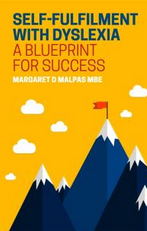 Malpas, M. (2017). Self-fulfilment with dyslexia. Jessica Kingsley Publishers. Malpas, M. (2017). Self-fulfilment with dyslexia. Jessica Kingsley Publishers.
Malpas strongly believes that dyslexia does not stop you from being successful, quite the contrary. Dyslexia also brings unique skills you can use to get ahead. She has interviewed accomplished people and learned the ten characteristics they have used to reach their goals. These include determination, self-esteem and passion, but also creativity and empathy. |
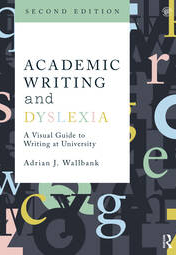 Wallbank, A. J. (2023). Academic writing and dyslexia: A visual guide to writing at university (Second edition.). Routledge. Wallbank, A. J. (2023). Academic writing and dyslexia: A visual guide to writing at university (Second edition.). Routledge.
Here is a visual approach to academic writing. It will help you learn critical reading, thinking, and writing. You will also learn how to structure and articulate your own ideas. The structure of the book follows the academic learning process, starting from reading, moving on to preparing to write. The book finishes with proofreading and editing. |
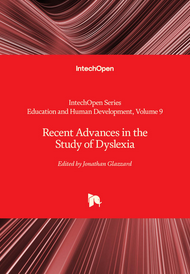 Glazzard, J. (2024). Recent advances in the study of dyslexia. IntechOpen. Glazzard, J. (2024). Recent advances in the study of dyslexia. IntechOpen.
This book explores contemporary perspectives on dyslexia. Cognitive science is used as the starting point, as authors discuss the support of dyslexic students, possible treatments, the role of technology, and working with teaching assistants. |
Image: Adobe Stock



